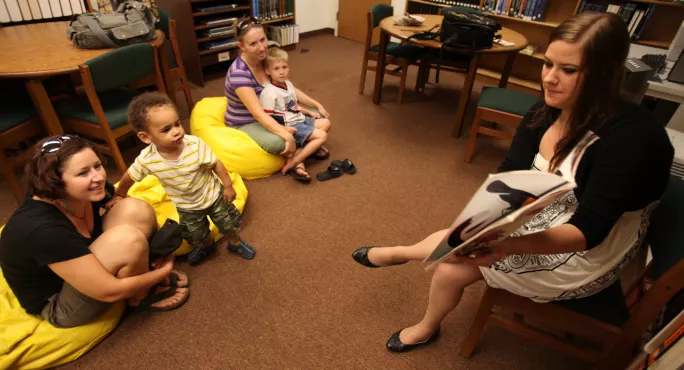A leading children’s publisher has expressed concerns that only 32 per cent of British children aged up to 13 are read to daily by an adult for pleasure.
Publisher Egmont has co-funded research, published today, which shows that the number of children who received storytime sessions has fallen by 4 percentage points on last year and 9 percentage points since 2012.
It warns that the “steep decline signals a significant threat to children’s wellbeing, with potential longer-term social impact,” and has called for parents and government to take action.
Top Tips: Five ways to make your primary reading rock
Resources: How to promote reading for pleasure
It is calling for “storytime” sessions in primary schools to be made an intrinsic part of the day while War Horse author and former children’s laureate Michael Morpurgo has supported the call to action with a specially-written poem.
Egmont’s consumer insight director Alison David said: “We know that reading to children is a very effective way to encourage them to read independently but, sadly, many parents simply don’t know what a great impact they could have on their children’s lives if they read to them daily.”
The impact of reading to children
Reading for pleasure has a four-times greater impact on academic success than a parent having a degree, says Egmont.
However last week, a survey by Renaissance UK of more than a million pupils revealed that only a quarter get recommended reading for pleasure time.
Today’s research, entitled Understanding the Children’s Book Consumer, reveals that 19 per cent of 8 to 10-year-old pupils have books read to them by an adult daily, which is down 3 percentage points since last year across all socioeconomic groups, irrespective of parents’ education, household income or social grade class.
The figure is even lower for boys at just 14 per cent (contrasted with 24 per cent of girls).
Laura Hamilton, headteacher of St Joseph’s Catholic Academy in Stoke-on-Trent, where storytime sessions were introduced as part of an independent study, said: “It’s no secret that the primary curriculum is jam-packed and some days it was a struggle to fit in storytime, but the benefits were clearly evident. During the five months of the project, almost all children made accelerated progress in reading comprehension. However, the most notable and most important impact of the project for our school was on children’s enthusiasm for reading for pleasure and on their eagerness to share stories with their family, friends and teachers.”
Mr Morpurgo said: “It is vital that children, young people and all of us have access to stories which give us the knowledge, empathy and understanding we need to negotiate life. But, just as importantly, we need to give children and their teachers and parents time to read.”
More information about the research can be found here.




